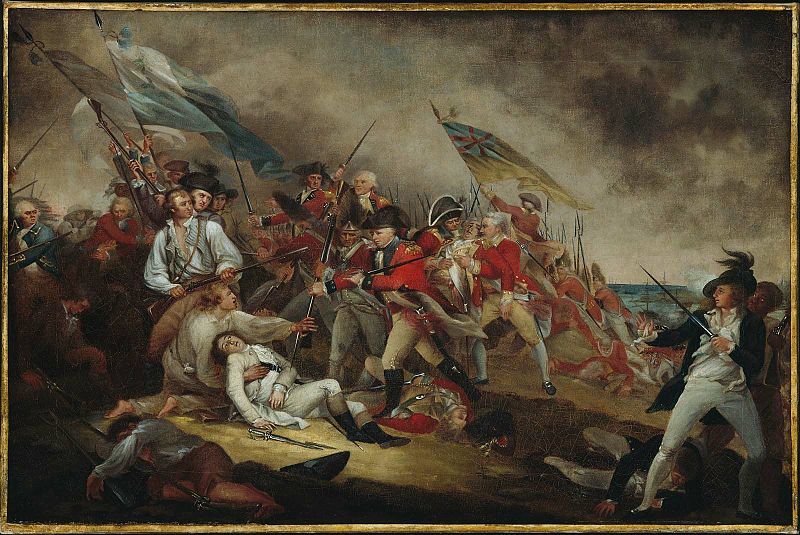Joseph Warren is forever stamped in our minds as the hero who lost his life on Bunker Hill, at the early age of 34. However, there was much more to the young physician’s life than his ill-timed death.
Early Home Life
Joseph Warren was born on June 11, 1741 in Roxbury, Massachusetts. He was educated at Harvard University, and went on to briefly teach at the Latin school in Massachusetts, before he decided to finish his schooling and become a physician. Dr. Joseph Warren married Elizabeth Hooten on September 6, 1764. As her dowry, she brought a large fortune she’d inherited.
Politics

Joseph Warren painted by John Singleton Copley
Public domain image.
When the Townshend Acts were passed in 1767, he started writing a series of articles under the name “A True Patriot.” This was his first involvement in the Revolution. The papers made the Royal Governor so angry that he tried to charge both the publishers and Joseph with slander against the state, but the grand jury refused to pin them with any charges.
Joseph Warren had close connections with Paul Revere, Samuel Adams, James Otis, and several other extreme patriots in the Sons of Liberty, which put him in the thick of the patriot movement. After the Boston Massacre in 1770, Joseph became the chairman of the Committee of Safety, and he delivered two of the famous orientations on the event committee’s anniversary.
During 1774, Warren spent the majority of the year in Philadelphia with the Continental Congress (although he was not on the Congress). While there he became involved with the militia, and was put in charge of a small group procuring gunpowder and ammunition. On April 18, 1775, Joseph Warren and Paul Revere learned that King George III had put a price on the heads of John Hancock and John Adams, and there was a group soldiers waiting to arrest them at their safe house in Lexington. Revere was sent out to warn them, and saved them from the arrest.
Soldier
When Joseph heard about the battles of Lexington and Concord, he decided to leave his patients with his assistant and ride out that direction to help out. He spent the following six weeks helping prepare the soldiers for battle. Because of all he did, he was promoted to second general in command of the Massachusetts forces on June 14, 1775.

The Death of General Warren at the Battle of Bunker’s Hill, June 17, 1775 by John Trumbull | Public domain image.
On June 17, 1775, Warren met with the committee of safety and found out that British forces were landing at Charleston. Warren then rode to the American fort at Breed’s Hill. He was offered command over a group of militia, but refused it because he wanted to go in as a regular volunteer. During the third attack from the British, Dr. Joseph Warren was shot in the head and died instantly.
Joseph Warren will always be remembered for his bravery and sacrifice to his country.


